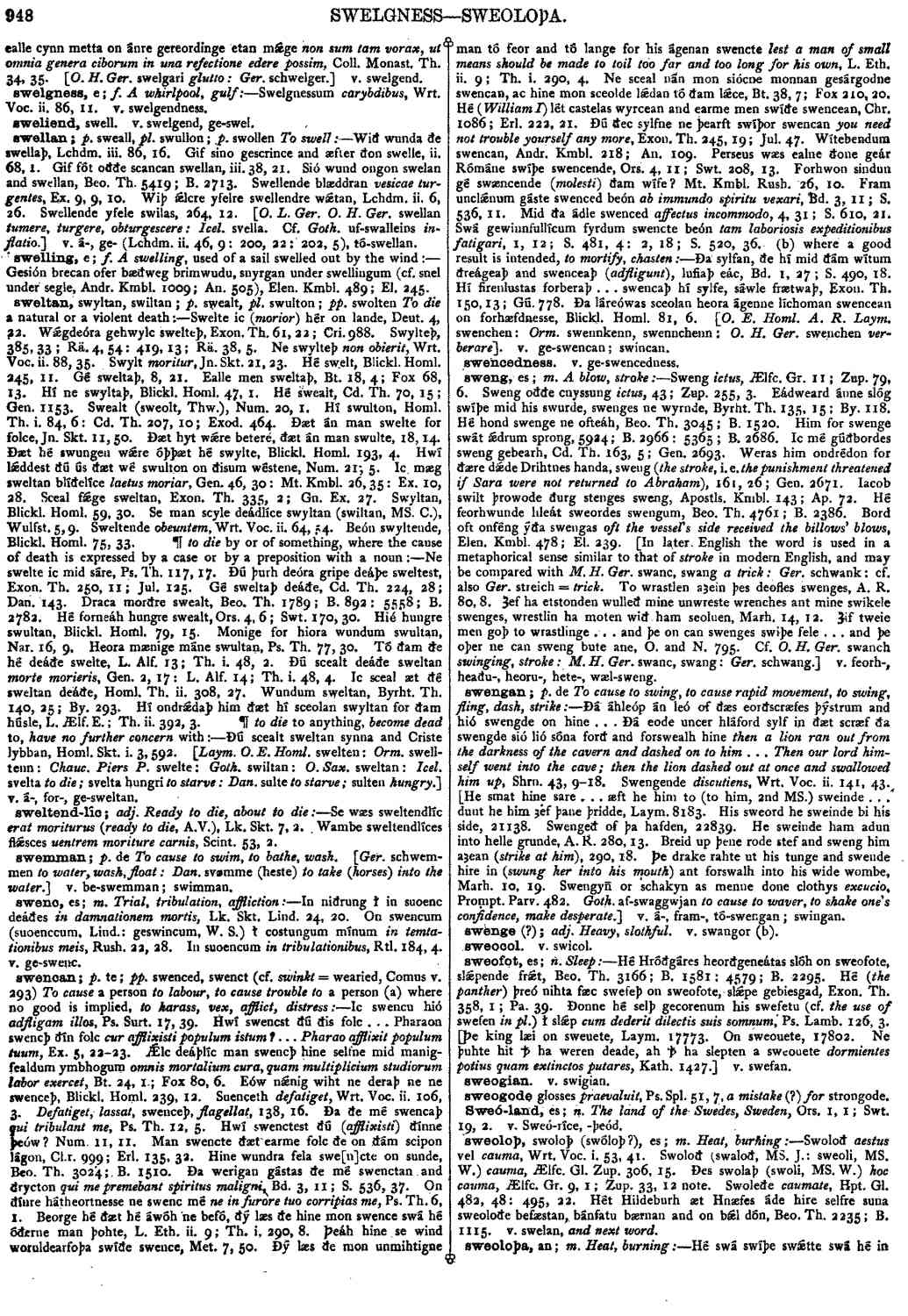swengan
- verb [ weak ]
-
Ðá áhleóp án leó of ðæs eorðscræfes þýstrum and hió swengde on hine . . . Ðá eode uncer hláford sylf in ðæt scræf ða swengde sió lió sóna forð and forswealh hine
then a lion ran out from the darkness of the cavern and dashed on to him . . . Then our lord himself went into the cave; then the lion dashed out at once and swallowed him up,
- Shrn. 43, 9-18.
-
Swengende
discutiens,
- Wrt. Voc. ii. 141, 43.
Bosworth, Joseph. “swengan.” In An Anglo-Saxon Dictionary Online, edited by Thomas Northcote Toller, Christ Sean, and Ondřej Tichy. Prague: Faculty of Arts, Charles University, 2014. https://bosworthtoller.com/29664.
Checked: 0